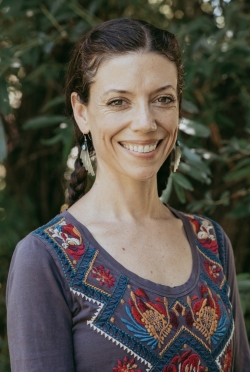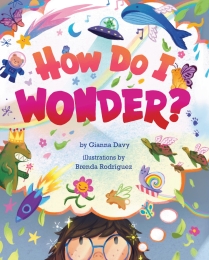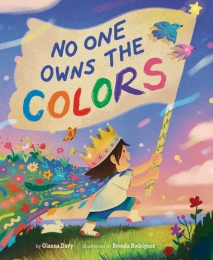Through lyrical text and vivid images, How Do I Wonder? invites young readers to open the door to their miraculous minds, exploring the wacky and wonderful 'What-ifs' and 'Whys' of the world around—and within—them.
A book can be a powerful tool to spark creativity and imagination.
Do snails view turtles as slow? Why is water wet?
From the author of No One Owns the Colors comes an entertaining and beautifully illustrated picture book that shows children how to ask questions that help them see the world in a different way.
A book can be a powerful tool to spark creativity and imagination.
Do snails view turtles as slow? Why is water wet?
From the author of No One Owns the Colors comes an entertaining and beautifully illustrated picture book that shows children how to ask questions that help them see the world in a different way.
For every young artist scolded for using the “wrong” color crayon, every boy teased for wearing a pastel shirt, every girl denied blue shoes, here’s the perfect response: All colors are for everyone. Just ask Nature!
No One Owns the Colors is a lively celebration of self-expression and a bolstering invitation to advocate for your special uniqueness.
The unnamed and non-gendered narrator shows us that colors are simply part of our natural world. No bit of the spectrum—from pink and blue to scarlet and chartreuse—is meant to be claimed by any one gender or being or culture. Color is not something that can be right or wrong, or better or worse.
Inspired by school yard experiences of her own children, this melodic, rhythmic text provides the words, and the confidence, readers may need if someone says that their color—be it skin, shirt, shoes, or simply the crayon they love most—is wrong.
No One Owns the Colors is a lively celebration of self-expression and a bolstering invitation to advocate for your special uniqueness.
The unnamed and non-gendered narrator shows us that colors are simply part of our natural world. No bit of the spectrum—from pink and blue to scarlet and chartreuse—is meant to be claimed by any one gender or being or culture. Color is not something that can be right or wrong, or better or worse.
Inspired by school yard experiences of her own children, this melodic, rhythmic text provides the words, and the confidence, readers may need if someone says that their color—be it skin, shirt, shoes, or simply the crayon they love most—is wrong.



